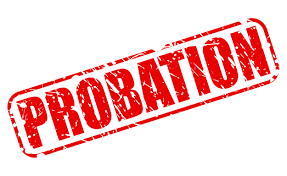Probation Revocation is NOT a hearsay “free-for-all”
 It is particularly accepted that that the rules of evidence do not apply to probation revocation hearings in Texas. This is a dangerous practice when it comes to people’s liberty. Courts are starting to push back against this practice, but many issues still exist when it comes to probation revocation proceedings.
It is particularly accepted that that the rules of evidence do not apply to probation revocation hearings in Texas. This is a dangerous practice when it comes to people’s liberty. Courts are starting to push back against this practice, but many issues still exist when it comes to probation revocation proceedings.
Torres v. State
Facts
A recent case out of the 1st district of Houston is hopefully a step in the right direction. In Torres v. State, No. 01-18-01074-CR (Tex. App.-Houston [1st Dist.] Dec. 22, 2020), the Prosecution moved to revoke Defendant’s probation for failing to “successfully complete” the SAFP program. One of the primary problems with this revocation is that it was based on the testimony of a SAFP coordinator and a discharge report that did not state any specific violations, but merely stated that Defendant had committed “rule violations”. Furthermore, the testimony of the SAFP coordinator was based on information relayed to him and not on his personal knowledge of the “violations” alleged. In addition, a records custodian with no personal knowledge authenticated Defendant’s probation records.
Confrontation and Authentication in Probation Revocation
The opinion largely focuses on the issue of whether the conclusory statement of general “rule violations” provides sufficient basis for revoking probation. However, as you can see above, there are also issues of authentication and confrontation. Luckily, the Houston court assumed that there was a confrontation right in probation revocation proceedings, even though there is no clear precedent supporting that assumption.
The closest precedent, used by the Houston Court, came in Ex Parte Doan where the Court of Criminal Appeals held that the rules of confrontation apply to probation revocation proceedings. In other words, the court held that a probation revocation is a judicial, not administrative, process. The court did not speak further on the confrontation issue, and the Court of Criminal Appeals has not yet heard another case involving Confrontation in probation revocation proceedings to clarify its holding. Regardless, the Houston court did not deep-dive into the Confrontation issue or the authentication issue.
Fortunately, the concurrence in Torres focused primarily on the Confrontation issue. Justice Keyes believes Doan overrules any case saying that there is no Confrontation right in probation revocation. He also briefly touches upon the hearsay issue by saying that the discharge report is double hearsay despite the business records predicate.
Hearsay and Due Process in Probation Revocation
On the main issue, the Houston court held that there must be a specific basis to support revocation. In other words, testimony and reports with general, conclusory statements are not enough. There must be facts supporting those statements, and there must be some personal knowledge of the bases for the statements. Due Process still exists in probation revocation proceedings. The court must determine that the the reason for revocation is legitimate. Courts must do this “to ensure [discretion] was used on a basis that was rational and connected to the purposes of [revocation]”. Leonard v. State, 385 S.W.3d 570 (Tex. Crim. App. 2012). Under the facts of Torres, no specific basis for discharge from SAFP existed in the discharge report. Further, the SAFP coordinator knew nothing about the specific bases for discharge.
Score One for Justice for All Texans on Probation!
More about Mimi Coffey & The Coffey Firm
When people look for a Top DWI Attorney or Best DWI Attorney, they look for experience, certification, and respect in the legal community. Mimi Coffey is a nationally-renowned trial attorney, board-certified in DWI by the NCDD. She has been practicing for over 24 years and is an author of multiple DWI Defense textbooks. She is also a national and state-wide lecturer on the law.
The Coffey Firm handles a wide variety of cases, including Unlawful Carrying Weapon (UCW), Assault (including family violence), and Possession charges. We can also help you try to get a DWI off your record or avoid probation revocation.
Mimi is also listed on several “top criminal lawyer near me” directory listings such as DWI Lawyers for Wise County, DWI Lawyer Tarrant County, DWI attorney Dallas County, DWI attorneys Collin County and DWI attorneys Parker County. Mimi is a caring DWI Lawyer in DFW, She is also involved in the Texas Tech School of Law foundation and enjoys using the skills she has developed to give back to the community.

